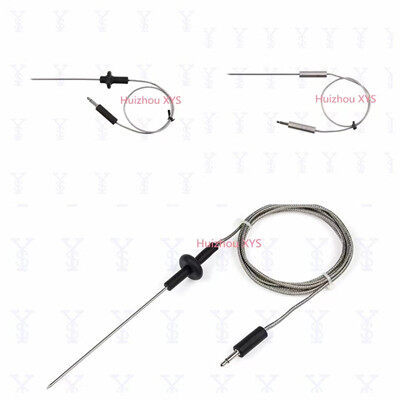Erè fòma imèl
emailCannotEmpty
emailDoesExist
pwdLetterLimtTip
inconsistentPwd
pwdLetterLimtTip
inconsistentPwd


Electronic Component Manufacturing Companies: The Backbone of Modern Technology
In the digital age, electronic component manufacturing companies are the unsung heroes powering our daily lives. From the smartphone in your pocket to the advanced machinery in industries, these companies play a pivotal role in ensuring the seamless operation of electronic devices and systems. This blog explores the significance of electronic component manufacturing companies, their impact on various industries, and the trends shaping the future of this essential sector.
The Role of Electronic Component Manufacturing Companies
Electronic component manufacturing companies specialize in producing the essential building blocks of all electronic devices. These components include resistors, capacitors, semiconductors, transistors, and integrated circuits, among others. Each of these components is critical in the functioning of electronic circuits, which form the core of devices ranging from simple household gadgets to complex industrial machinery.
The quality and reliability of electronic components directly impact the performance, durability, and efficiency of the final products. Therefore, the role of electronic component manufacturing companies is crucial not only for consumer electronics but also for industries such as telecommunications, automotive, healthcare, and aerospace.
Key Players in the Electronic Components Industry
The electronic components industry is vast, with numerous companies specializing in different types of components. Some of the leading electronic component manufacturing companies include:
Texas Instruments - Renowned for its analog and embedded processing products.
Intel Corporation - A leader in semiconductor manufacturing, particularly known for its microprocessors.
Samsung Electronics - A giant in both consumer electronics and electronic components, especially memory chips.
Qualcomm - A dominant player in the semiconductor and telecommunications equipment sector.
Broadcom Inc. - Known for its semiconductors and infrastructure software solutions.
These companies not only manufacture components but also contribute to the innovation and advancement of technology by investing in research and development.
The Manufacturing Process of Electronic Components
The manufacturing of electronic components involves several intricate processes, each requiring precision and expertise. The general process includes:
1. Design and Prototyping
The journey begins with the design phase, where engineers conceptualize the component's functionality. Prototyping follows, allowing for testing and refinement before mass production.
2. Material Selection
The choice of materials is critical. For example, semiconductors require pure silicon, while capacitors might need specific dielectric materials. The selection process ensures that the components can withstand operational stresses and meet the required performance standards.
3. Fabrication
Fabrication involves creating the physical structure of the component. This process can include photolithography for semiconductors, winding for inductors, or deposition techniques for thin-film resistors. Precision is key to ensuring the component's functionality.
4. Assembly and Packaging
Once the components are fabricated, they are assembled and packaged to protect them from environmental factors and to make them compatible with other devices. This step often involves automation for efficiency and consistency.
5. Testing and Quality Control
The final step is rigorous testing to ensure that the components meet the specified standards. This includes electrical testing, durability tests, and inspections for defects. Only components that pass these tests proceed to market.
Importance of Electronic Component Manufacturing Sales
While manufacturing is the backbone, electronic components manufacturing sales play a crucial role in bridging the gap between production and market demand. Effective sales strategies ensure that components reach the right markets and are integrated into various applications. This aspect of the business is vital for maintaining profitability and sustaining innovation in the industry.
Sales teams work closely with manufacturers and end-users to provide solutions that meet specific needs, whether it's customizing components for a particular application or ensuring timely delivery to avoid production delays. A strong sales network also helps companies stay competitive in a market where technological advancements are constant.
Trends Shaping the Future of Electronic Component Manufacturing
The electronic component manufacturing industry is continuously evolving, driven by technological advancements and market demands. Some of the key trends shaping the future include:
1. Miniaturization and High-Density Packaging
As electronic devices become smaller and more powerful, there is a growing demand for miniaturized components. High-density packaging technologies, such as System-in-Package (SiP) and 3D integrated circuits, are becoming increasingly popular.
2. Sustainability and Eco-Friendly Manufacturing
Environmental concerns are pushing companies to adopt greener manufacturing practices. This includes using sustainable materials, reducing waste, and improving energy efficiency in production processes.
3. The Rise of the Internet of Things (IoT)
The IoT revolution is creating new opportunities for electronic component manufacturers. The need for sensors, connectivity modules, and low-power components is driving innovation in the industry. Companies are developing components that are not only efficient but also capable of supporting the vast networks of connected devices.
4. Advanced Semiconductor Technologies
The semiconductor industry is witnessing rapid advancements with technologies like FinFET, Quantum Computing, and Neuromorphic Chips. These innovations promise to deliver unprecedented processing power, which is essential for emerging applications like artificial intelligence and autonomous vehicles.
5. Global Supply Chain Optimization
The COVID-19 pandemic highlighted vulnerabilities in global supply chains. As a result, companies are focusing on building more resilient and flexible supply chains. This includes diversifying manufacturing locations, investing in digital supply chain management tools, and forging closer relationships with suppliers.
Challenges Faced by Electronic Component Manufacturing Companies
Despite the opportunities, electronic component manufacturing companies face several challenges:
1. Supply Chain Disruptions
Global events such as pandemics, geopolitical tensions, and natural disasters can disrupt the supply chain, leading to delays and increased costs.
2. Technological Obsolescence
The rapid pace of technological change means that components can quickly become obsolete. Companies must continuously innovate to stay relevant, which requires significant investment in R&D.
3. Regulatory Compliance
Compliance with international standards and regulations is critical for manufacturers. This includes environmental regulations, safety standards, and industry-specific requirements. Navigating this complex landscape can be challenging, especially for companies operating in multiple regions.
4. Price Competition
The electronic components market is highly competitive, with pressure to keep prices low while maintaining quality. This is particularly challenging for smaller companies that may not have the economies of scale enjoyed by industry giants.
Conclusion
Electronic component manufacturing companies are at the heart of the technological advancements that define our modern world. From driving innovation to ensuring the reliability of electronic devices, these companies play a critical role in shaping the future. As the industry continues to evolve, manufacturers must navigate challenges and embrace emerging trends to stay competitive and meet the growing demands of the global market.
By understanding the intricacies of the manufacturing process, the importance of sales strategies, and the trends influencing the industry, stakeholders can make informed decisions that contribute to the continued success of electronic component manufacturing companies. Whether you're a tech enthusiast, a business leader, or a consumer, the impact of these companies on your daily life is undeniable.

